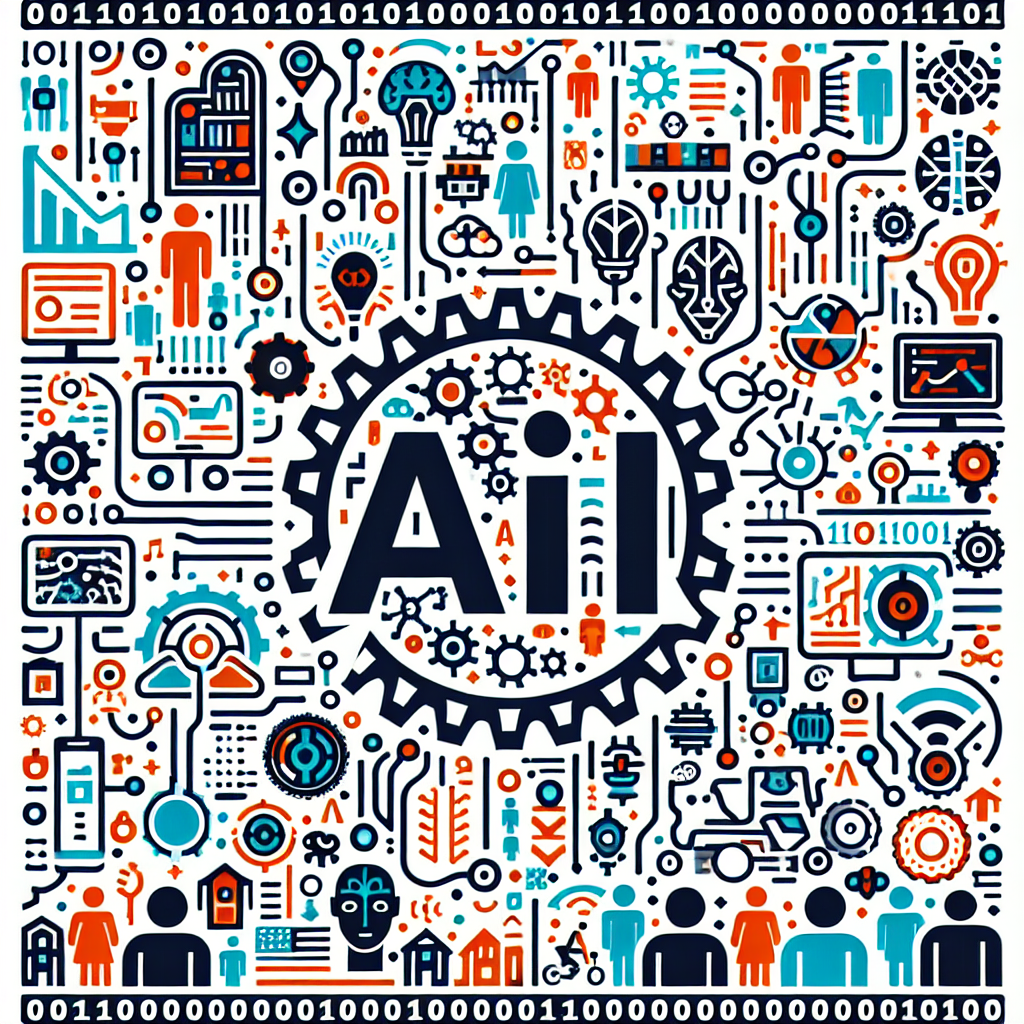Artificial Intelligence (AI) software has rapidly become a transformative force in society, with implications across various sectors such as healthcare, transportation, finance, and even entertainment. The impact of AI software on society is profound and far-reaching, with both positive and negative consequences. In this article, we will explore the ways in which AI software is shaping our world and the potential implications for the future.
AI software has the potential to revolutionize many aspects of our lives, from improving efficiency and productivity in businesses to enhancing the quality of healthcare and education. However, there are also concerns about the ethical implications of AI, including issues related to privacy, bias, and job displacement.
One of the most significant impacts of AI software on society is in the field of healthcare. AI-powered tools are being used to analyze medical images, diagnose diseases, and develop personalized treatment plans for patients. These technologies have the potential to improve patient outcomes, reduce medical errors, and lower healthcare costs. For example, AI algorithms have been developed to detect early signs of diseases such as cancer, diabetes, and heart disease, allowing for faster and more accurate diagnosis.
In the field of transportation, AI software is being used to develop autonomous vehicles that have the potential to revolutionize the way we travel. These self-driving cars are equipped with sensors, cameras, and AI algorithms that allow them to navigate roads, avoid obstacles, and make decisions in real-time. While the promise of autonomous vehicles is to reduce traffic accidents, increase efficiency, and decrease pollution, there are also concerns about safety, liability, and job displacement for drivers.
In the financial sector, AI software is being used to analyze market trends, predict stock prices, and detect fraudulent activities. These technologies have the potential to improve investment decisions, reduce risks, and enhance security. However, there are also concerns about the use of AI in high-frequency trading, where algorithms can execute trades in milliseconds, leading to market instability and unfair advantages for certain players.
In the field of education, AI software is being used to develop personalized learning experiences for students, based on their individual needs and preferences. These technologies can adapt to each student’s pace, style, and performance, providing tailored recommendations and feedback. While AI-powered education tools have the potential to improve student outcomes and increase access to quality education, there are also concerns about data privacy, bias, and the role of teachers in the learning process.
Despite the numerous benefits of AI software, there are also significant challenges that need to be addressed. One of the biggest concerns is the potential for bias in AI algorithms, which can perpetuate existing inequalities and discrimination. For example, AI systems trained on biased data may make unfair decisions in hiring, lending, or criminal justice. It is essential for developers to ensure that AI algorithms are transparent, accountable, and ethical in their decision-making processes.
Another challenge is the impact of AI on jobs and the workforce. While AI software has the potential to automate routine tasks and increase efficiency, there are concerns about job displacement and the need for retraining and upskilling workers. It is crucial for policymakers, businesses, and educators to develop strategies to address these challenges and ensure that the benefits of AI are shared equitably across society.
In conclusion, AI software has the potential to revolutionize society in numerous ways, from improving healthcare and transportation to enhancing education and finance. However, there are also significant challenges that need to be addressed, including concerns about bias, privacy, and job displacement. It is essential for developers, policymakers, and society as a whole to work together to harness the power of AI for the greater good and ensure that its benefits are shared equitably.
FAQs:
Q: What is AI software?
A: AI software refers to computer programs that can perform tasks that typically require human intelligence, such as learning, reasoning, problem-solving, and decision-making.
Q: How is AI software used in healthcare?
A: AI software is used in healthcare to analyze medical images, diagnose diseases, develop treatment plans, and predict patient outcomes. These technologies have the potential to improve patient care, reduce medical errors, and lower healthcare costs.
Q: What are the ethical implications of AI software?
A: The ethical implications of AI software include concerns about bias, privacy, accountability, and job displacement. It is essential for developers to ensure that AI algorithms are transparent, accountable, and ethical in their decision-making processes.
Q: How is AI software transforming transportation?
A: AI software is being used to develop autonomous vehicles that can navigate roads, avoid obstacles, and make decisions in real-time. These self-driving cars have the potential to revolutionize the way we travel, but there are also concerns about safety, liability, and job displacement for drivers.
Q: How can we address the challenges of AI software?
A: Addressing the challenges of AI software requires collaboration between developers, policymakers, businesses, and society as a whole. It is essential to ensure that AI algorithms are transparent, accountable, and ethical in their decision-making processes, and to develop strategies to address concerns about bias, privacy, and job displacement.

